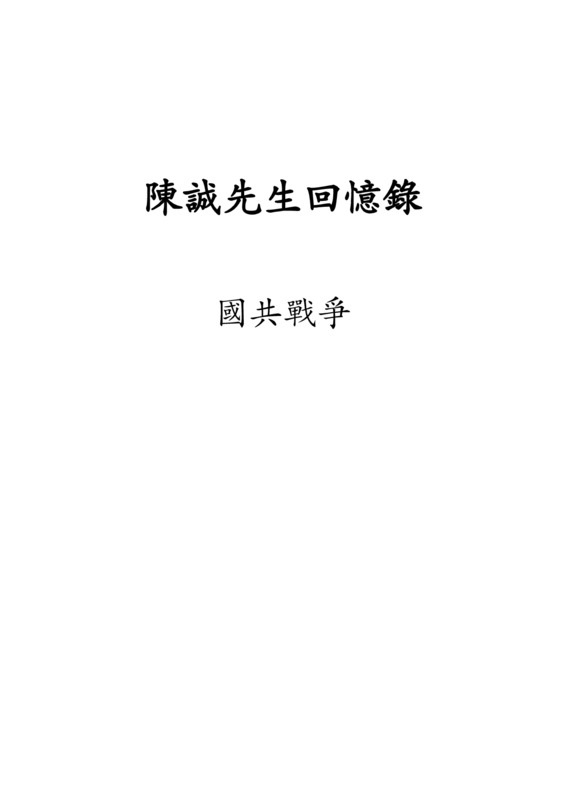Explore the collection
Showing 6 items in the collection
6 items
Book
1966: Memories of Our Generation
This book is a collection of nineteen feature articles by well-known contemporary scholars, researchers, and writers. They recapitulate their own experiences during the Cultural Revolution in a literary style.
When the Cultural Revolution broke out, they were all young people in their twenties. These reminiscence articles are the result of a rare collective reflection after the end of the Cultural Revolution. The authors described their own experiences during the Cultural Revolution in the articles, providing a personal perspective on history.
The chief editor of this book is the philosopher and activist Xu Youyu, a former researcher at the Institute of Philosophy, Chinese Academy of Social Sciences. Xu signed and made suggestions on Charter 08, and also is a co-founder of the New Citizens Movement. Since 2015 he has resided in New York City, where he has been a visiting scholar at the New School for Social Research.
This book was published by China Federation of Literary and Art Circles Publishing Corporation in 1998.
Book
Active Life
This is a collection of essays by Cui Weiping, a professor at the Beijing Film Academy. The title, inspired by Hannah Arendt, covers a wide range of fields from poetry and movies to politics and ethics, and tells the stories of fascinating people, the construction of their inner world and external lives. These people include Hai Zi, Wang Xiaobo, Arendt, Woolf, Beauvoir, Tarkovsky, Kremer, Herbert, Havel, and many others. Behind these seemingly unrelated names, there are hints of these two interdependent spiritual dimensions: on the one hand, the construction of the external world in which we live; on the other hand, the construction of our own inner world, which cannot be neglected. This book, published by Renmin University of China Press in 2003, has had a significant impact on the development of civil society in China.
Book
Chen Cheng's Memoirs—The War between the Nationalists and Communists
Mr. Chen Cheng (courtesy name Cixiu; alias Shisou) served as the commander of the KMT army, commander-in-chief of the group army, commander-in-chief of the theater of operations, and chief of the general staff of the KMT. After the defeat of the Kuomintang army in Taiwan, Chen Cheng served the Administrative Yuan as Vice President of the Kuomintang. The volumes associated with *Chen Cheng's Memoirs* were published by Taiwan's National Museum of History in 2005. The series is divided into six volumes: *The Northern Expedition and the Chaos* (one volume), *The War between the Nationalists and Communists* (one volume), *The War of Resistance Against Japanese Aggression* (two volumes), and ***The Construction of Taiwan*** (two volumes). The first volume, *The War between the Nationalists and Communists* includes three parts: *Suppressing the Communists - Memories of the Military*, *Summary of Mr. Chen's Words and Actions*, and *Correspondence and Telegrams*. The book has original historical materials related to the five sieges and the counter-insurgency. In particular, this is the first time that important historical materials regarding the correspondence between Chiang Chung-cheng (courtesy name of Chiang Kai-shek) and Cixiu have been made public.
Book
Rebellion in All Its Shapes and Colors --The Formation and Evolution of the Spiritual Qualities of the Red Guards
This book seeks to reveal the characteristics of the Red Guard movement through the study of the Red Guard's spiritual qualities, such as the mode of action of the rebellion, the formation of factions and regional differences, as well as the types of Red Guard ideology and the trend of change before and after the Cultural Revolution, etc. The author is a peer of the Red Guard and has accumulated first-hand information on the subject through extensive interviews and documentary research. The author of this book, Xu Youyu, is a peer of the Red Guards, and has accumulated first-hand information about the research through a large number of interviews and documentary research. At present, there are very few studies that analyze the formation of the Red Guards' mentality based on oral data and case studies. Therefore, this book is of great reference value to researchers in this field. This book was published by the Chinese University of Hong Kong Press in 1999.
Film and Video
Working toward a Civil Society (Episode 5): Cui Weiping
The Xi’an-based videographer Zhang Shihe, or Tiger Temple, has been a fixture on the independent Chinese history scene for more than twenty years. In 2010, he began a thirty-part series of short interviews with leading Chinese thinkers called “Working Toward Civil Society,” in which he explores how China can build a true civil society. Some of those interviewed have now been silenced, passed away, or moved abroad, making the series itself a work of history.
In this episode, Zhang interviews one of China’s most thoughtful public thinkers, Cui Weiping. Cui is a professor at the Beijing Film Academy, and translator of Havel into Chinese. She was a signer of Charter 08, and friend of the late Nobel Peace Prize laureate Liu Xiaobo. Although the interview is only 8 minutes long, Cui touches on some of the key problems that continue to plague China: how to break free of overwhelming government control of civic life?
Note to English speakers: this interview only has Chinese subtitles. The CUA is working to add English subtitles to all of our video offerings so check back in a few months.
Film and Video
Working toward a Civil Society (Episode 8): Xu Youyu
How can China build a true civil society? Since 2010, independent director Tiger Temple has conducted a series of interviews with scholars and civil society participants.





